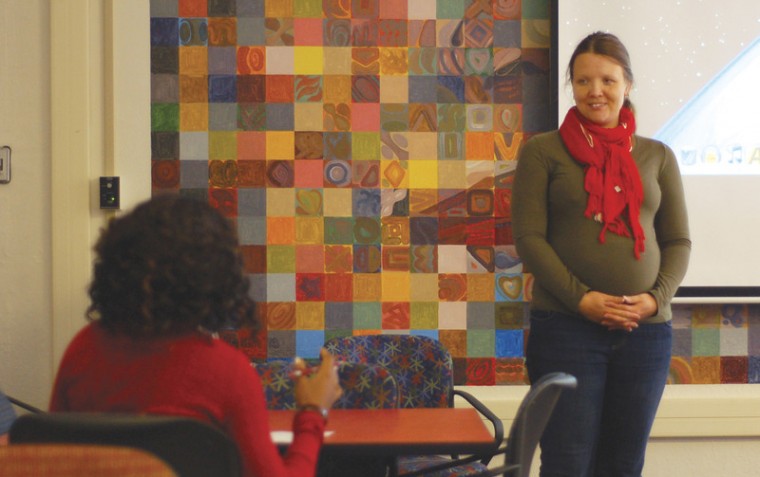When Franklin Yartey’s cousin drove him to school in the United States for the first time, Yartey wondered where all the buildings were.
“I kept asking my cousin, ‘When am I going to start seeing skyscrapers?'” Yartey said. “He kept saying, ‘Just wait, just wait.'”
After arriving at Northwestern College in Orange City, Iowa, Yartey didn’t find many skyscrapers, but he found he liked the city all the same. And he liked being in the States.
Originally from Accra, Ghana, Yartey is one of more than 500 international students at the University — 323 pursuing undergraduate degrees and 192 for graduate studies, according to the Office of Institutional Research’s 15-day report.
Director of the Center for International Programs Paul Hofmann said international students arrive each year from more than 90 different countries to learn, teach and live for a semester, year or longer.
Yartey received his bachelor’s in communication at Northwestern, then his master’s at Indiana University. Now he’s looking to earn a Ph.D. here at the University to teach others as well as continue to learn from them.
He said he never had much trouble adjusting to the United States culture. By the time he enrolled at Northwestern, he had already been to the United Kingdom, and he could speak English.
“The official language in Ghana is English,” Yartey said. “When you go to the store, you speak in English.”
He lived on Northwestern’s campus and, like most college students, had to adjust to life in residence halls, but Yartey also had a host family who cooked dinner for him a couple of times each week. The hardest adjustment he had to make, he said, was the food.
“It’s a little bit of an ordeal adjusting to the food,” Yartey said. “American food tends to be too sweet.”
Graduate student Anastasia Widmer said culture shock happens to most people in stages.
The first stage is the honeymoon stage, when for the first few weeks students notice similarities between the new culture and their own.
But when they realize they aren’t leaving soon, Widmer said students begin seeing the differences.
“If you’re thrown into a completely different environment, the first thing you want to do is find something familiar,” she said.
Widmer finished her bachelor’s at St. Petersburg State University. She completed her master’s at the University in 2006 and became a faculty member in Russian studies; now she, too, is working on completing a Ph.D. in communication studies.
Widmer said she traveled a lot in Europe, but had never been to the United States, so she decided to enroll in a U.S. school. She arrived knowing English, but almost nothing else about American culture.
“Knowing the language and knowing the culture are two different things,” Widmer said.
Widmer said she had trouble adjusting to a smaller town from a big city, and she visits Chicago whenever she can, just to feel like she’s somewhere familiar.
“I come from a big city and believe me, I feel much more comfortable in New York or Chicago,” she said.
But for many international students, Widmer said, traveling is a luxury. Most don’t have cars, so just getting to the store for groceries could be an issue.
Widmer said students are limited on how much they can bring on a plane without paying extra for more bags, so many arrive with little. Many graduate students living off campus might not have necessities like cooking pots, pillows, bed sheets or silverware.
She said she knew the Center for International Programs helps students as much as possible, but she encouraged others to ask their international classmates if they need anything, like a ride to Walmart.
And many might need help adjusting for more than a semester or year. Widmer said getting a student visa could be an open door to staying in the United States longer than the original plan.
“The motivation to adjust is very different when you know you’re going to stay here for at least a couple of years,” Widmer said.








